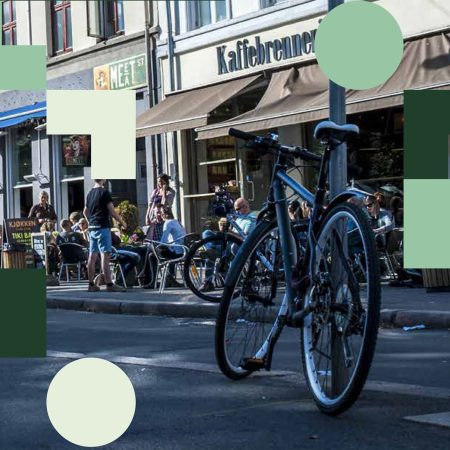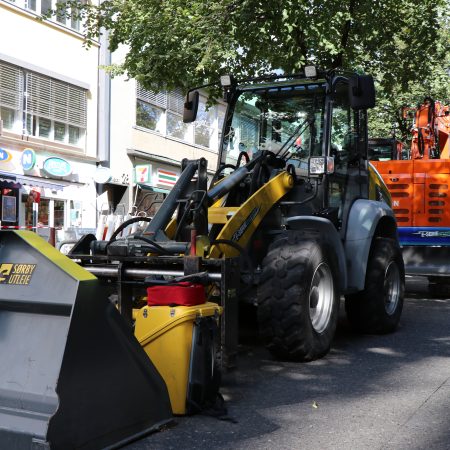Size: medium
Type: image

Summary
The City of Oslo has ambitious climate targets and shall reduce greenhouse gas (GHG) emissions by 95% by 2030. The municipality’s Procurement strategy and Climate strategy for Oslo leading up to 2030 contain clear provisions for how this is to be achieved by transforming the transport sector. A significant proportion of Oslo’s GHG emissions come from transport operated by suppliers delivering goods or carrying out work for the municipality. The standard requirements presented in this City Government proposition relate to direct emissions from transport in the City of Oslo and aim to accelerate the transition to a zero-emission capital.
This proposition is being submitted to ensure that the City of Oslo achieves its climate targets, improves local air quality and reduces traffic impact. By setting climate and environmental requirements for transport for its procurements and ensuring its entities act in a consistent and coordinated manner, the municipality is sending a clear signal to the market that zero-emissions and biogas vehicles is desired for all jobs and deliveries that include transport. The environmental requirements submitted in this proposition will also lead to significant emissions reductions for the Oslo region. This is because suppliers who invest in zero-emissions and biogas vehicles will also use these when working for other customers who do not typically demand climate- and environmentally friendly transport solutions.
Zero-emissions technologies (electricity and hydrogen) will be a significant part of the solution for avoiding GHG emissions from vehicles and machinery in the zero-emissions city. However, the City Government wishes to emphasise that biogas – and any other biofuels that are sustainably produced and can be documented as providing equivalent climate benefits to electricity and hydrogen – is an important part of the climate solution for heavy vehicles, construction machinery and ships. Using biogas causes some emissions that contribute to local air pollution. However, producing biogas from local waste resources is a good use of resources and does not have the same negative effects in production as some other biofuels.
To ensure that the municipality’s deliveries are made with the lowest possible GHG emissions, strict requirements must applied in procurements that include transport. Suppliers who use zero-emissions or biogas technology shall be given a significant advantage in the evaluation process. The “Environmental performance” award criterion shall be used as standard. For procurements where there are a sufficient number of suppliers who can use zero-emissions or biogas vehicles, use of these technologies shall be set as a minimum requirement. A minimum requirement of this nature will be mandatory for the municipality’s procurements from 2025. For the suppliers, common requirements – with notice that they will be tightened – will be important in creating predictability and protecting investments in necessary infrastructure and vehicles.
Energy-efficient driving, sensible transport planning and route optimisation, as well as switching more goods to electric cargo bikes, are examples of measures that reduce emissions and traffic. Requirements for such measures shall therefore be included in relevant procurements.
This City Government proposition paves the way for the City of Oslo’s entities to use standardised requirements in procurements. The entities have a duty to carry out market surveys so that the requirements to be used are applied in a way that produces the best results. The municipality’s Agency for Improvement and Development (AID) shall be responsible for developing requirements and guidance, and assisting the entities in implementing the requirements.
Oslo has already distinguished itself as a city with a strong focus on climate-friendly mobility solutions. This City Government proposition makes an important contribution in achieving the climate targets. The proposal could also play an important role in mobilising equivalent efforts among other public-sector purchasers, both in Norway and internationally.
The standard requirements adopted in this proposition have been developed on the basis of several years’ experiences and mapping via the BuyZET pilot project, in which the City of Oslo was represented by AID1. The requirements are also based on input from affected municipal entities and selected suppliers.

